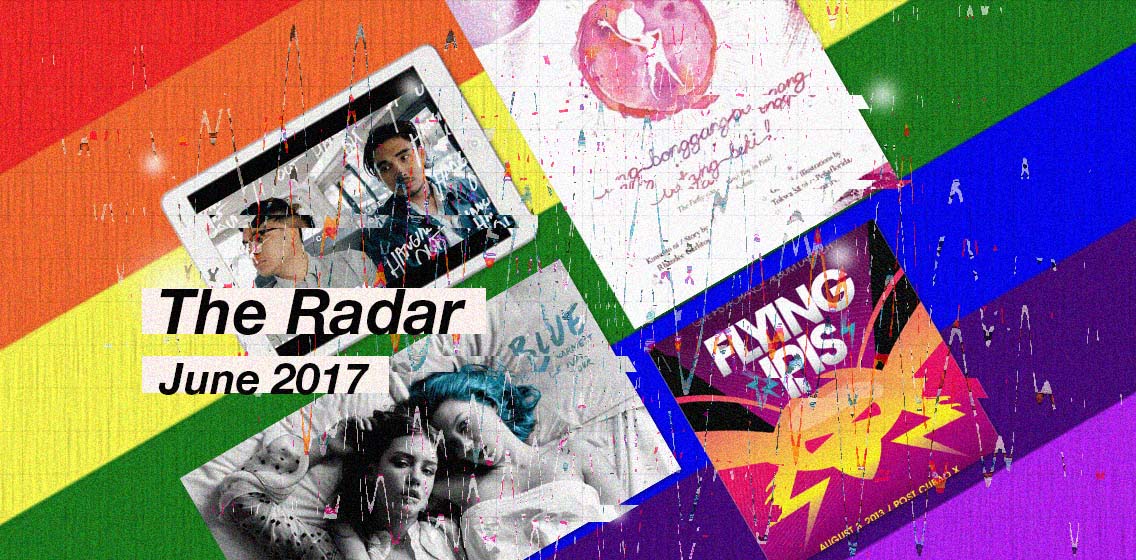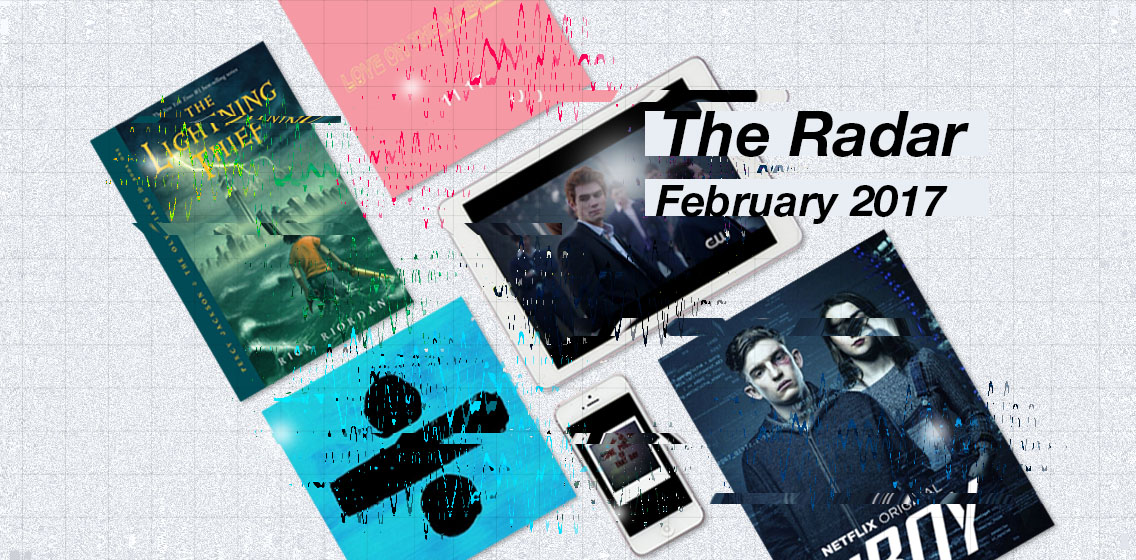The June Radar: #LoveWins

Web Series: Hanging Out (2016)
It’s not every day that the LGBTQ+ community can accentuate themselves in the filtered media, and if it (luckily) is, the Internet is where they can wave their flags freely. December 2016 was a remarkable month for the Filipino LGBTQ+ community as the first-ever Filipino gay web series, directed by Petersen Vargas and starring Paulito Del Mundo as David and Jox Gonzales as Adrian, launched its flag—embodying the gay spirit aligned with socio-political matters inside and outside the LGBTQ+ community.
Ambiguous as it is, the storyline contains the substance of the series itself—the sassy millennial lifestyle, the amicable squad, and the umpteenth emotions of gay existence. The show could do a lot more though if the second season can offer more layers than what was established. The aesthetically pleasing cinematography catches the vibrance and blending of characterizations, but the actors’ skills seem to be the Achilles’ heel of the show. Nevertheless, the weakness of the acting also makes it ironically natural. Despite gaps that need to be filled, Hanging Out amplifies its importance in a distortedly raucous society that still plays taboos and stereotypes on repeat.

Book: Ang Bonggang Bonggang Batang Beki by Rhandee Garlitos (2013)
Once upon a time, there was a child who grew up without a mother and ended up living with a mean guardian and two obnoxious cousins—and that’s Cinderella. But author Rhandee Garlitos—appearing on the scene with a magic wand in hand—twists the fairytale narrative into something odd. In his take, the child is named Adel and instead of an evil stepmother, Adel has an Uncle Braulio who works in the military. In place of the petty stepsisters, the picture includes Adel’s bullying cousins, Bruno and Berto.
The twist? Adel is an effeminate young boy who loves the color pink—soft-spoken, dainty, and everything that Filipinos would most likely tag as the stereotypical “bading”, “beki” or “bakla”. Ang Bonggang Bonggang Batang Beki is the first children’s book in Asia of its kind, hooking young readers to understand that you can grab your power suit and accentuate your femininity with pink floral embroidery, as there’s nothing shameful with growing up bongga and fabulous like Adel. Besides, there’s no gender confusion to cure or even questions like “Anong pangalan mo sa gabi?” to answer—just a safe space for acceptance.

Music: Flying Ipis
Upon hearing the term Flying Ipis, any sane Filipino would know better than to stick around. But for those who frequently listen to the all-girl, garage punk rock band named after the unwanted residents of your household, it’s one of their primary sources of quality OPM music.
The Flying Ipis band boldly projects their sexuality through the rather suggestive lyrics of their upbeat and catchy bass tunes. Their iconic songs, such as Walust, Sssikreto, and Past is Past, Bitch express feelings of guilt, frustration, and anger, respectively, while the tracks This Song is About You and Lundagin Mo, Beybi! both have more of a positive vibe to them. With all the loud chants and headbanging, celebrating pride month has never been this lively.
At present, the quartet are already well on their way to being widely recognized, often appearing in music festivals such as Octoberfest, Fête de la Musique, and the Jack Daniel’s Indie Fest. Whether locally or globally, Flying Ipis has shown how proud they are of their sexual orientation, and they’ve done it with immense badassery in every performance. There probably aren’t a lot of musicians doing what they do—waving the rainbow flag and at the same time giving the audience the surge of adrenaline worthy of their haunting name.

Film: Blue Is The Warmest Color (2013)
You can’t draw this film like one of those French movies. Directed by Abdellatif Kechiche, Blue Is The Warmest Color is a coming-of-age drama deeply extending to identity, sexuality, and all the silent screeches in between. The story mounts from a young woman named Adele who can kiss boys both in the hallway and in bed; but instead of being ecstatic, she becomes doubtful over it. The blue-haired Emma then enters her life to trudge the plot and give it a full spin.
The erotic film shoots down bare—literally—through its unmasked depiction of youth’s sexual exploration. On general standards, this kind of romantic material doesn’t suit everybody’s eyes—while at the same time, the film does what it calls for: to open eyes. The craft of the film is pure irony as it is digs beyond the unexplored—raging on how a cold color can give burning warmth.





